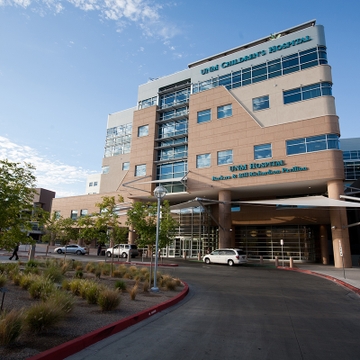Program Provides Research Opportunities for Undergraduate Students

Timely Treatment
UNM Hospital Providing HIV Screening & Preventive Medication for Sexual Assault Victims
Doctors know they have a 72-hour window to begin administering a cocktail of antiviral drugs to patients who might have been exposed to HIV to protect them from becoming infected.
While on call as an internal medicine resident at The University of New Mexico Hospital emergency department, Tirajeh Saadatzadeh, MD, discovered that people being evaluated for sexual assault were being discharged without these lifesaving medications.
Worse, they were left on their own to seek HIV testing through the Department of Health and track down the pharmacies that stocked the drugs.
In a paper newly published in the Journal for Healthcare Quality, Saadatzadeh describes how she and her colleagues created a pilot program to ensure these patients received rapid screening for HIV in the hospital and were sent home with the needed medicines, along with an appointment for follow-up care at an outpatient clinic.
Patients received also printed instructions and telephone support to ensure that they continued taking their medication for the prescribed period of time needed to prevent an HIV infection.
"We set up a 24/7 hotline called Connect to Care," Saadatzadeh says. "It's a phone number that the physicians can call if those numbers come back positive." A patient with a positive test result could then receive counseling from specialized nursing staff.
The team also identified 10 outpatient clinics willing to provide follow-up services to the patients seen at UNMH.
The program was funded by the Community of Interns and Residents, a national organization with chapters at residency sites around the country, she says. The funding paid in part for keeping a stockpile of the expensive medications on hand.
The need first emerged in mid-2018, when two infectious disease doctors sought her help because they were seeing sexual assault patients in the emergency department and were unsure of how to proceed. No HIV testing was being done with these patients, and the hospital pharmacy did not keep the antiviral drugs in stock.
"It was this recurring thing that kept happening," Saadatzadeh says. "That's when the problem was identified."
Working with the pharmacy, emergency physicians and infectious disease specialists, the team developed a new protocol. Patients now receive a rapid HIV test that gives a preliminary indication within two hours of whether a patient has been exposed to the virus.
Since the program was fully launched in 2019, 39 patients have been issued take-home medication packs by the hospital pharmacy, Saadatzadeh says.
In addition to making the medications available, emergency department providers were briefed on the new protocol, which was also incorporated into the electronic medical record, she says.
Saadatzadeh hopes to see the protocol extended to other departments at UNMH. "The fruit of the labor has been truly incredible, she says. "We see so many people around the state getting the mediations that they should be getting. We have identified new HIV cases as a result of this. Just getting the HIV testing happening is huge."
She recently presented her findings at a meeting of the American College of Physicians. "It was wonderful in terms of the publicity it got for our hospital," Saadatzadeh says. "People were amazed at what we were able to do. It really was a shining moment for UNM."